Congratulations to CrimSL's Omowumi (Wumi) Asubiaro Dada on receiving a 2023-2024 Connaught PhDs for Public Impact Fellowship for her project "Amplifying Gendered Conflict Prevention Practices in the Global South"!
Asubiaro Dada is a PhD candidate supervised by Professor Kamari Clarke.
Prior to her PhD studies, she worked as a human rights lawyer on issues of social inequality, gender-based violence and inclusion. She received a Bachelor of Laws degree from Lagos State University, Nigeria; was called to the Nigerian Bar; and obtained a Master of Law Degree from the University of Pretoria in South Africa.
She has worked in law and public policy for the past 21 years to design and manage projects for non-governmental organisations, government agencies and international development agencies. As a feminist, she makes significant personal and technical contributions to the women’s movement in Nigeria and Africa. She co-convenes the Feminist Womanifesto, one of the biggest platforms for feminists organising in Nigeria, and sits on the boards of BAOBAB For Women Human Rights, Gatefield Africa, Abode Community Centre (Canada), and the Centre for Redefining Alternative Civic Engagement for Africa.
Description of Fellowship Project
"Amplifying Gendered Conflict Prevention Practices in the Global South" - Omowumi (Wumi) Asubiaro Dada
My research is situated within an Early Warning Early Response project ongoing in sixteen communities in Nigeria with the goal of amplifying women’s practices of preventing conflict and subsequently influence policies and actions on women’s inclusion in conflict prevention in Nigeria and Africa. I examine two categories of women in such domains of conflict and violence, particularly in Kaduna, Nigeria – one of Nigeria’s thirty-six states.
On the one hand, this research interrogates the actions of female vigilante members. Vigilante groups are informal non-state groups that provide security to dispel an attack, combat perpetrators during an attack and work to enforce some order in a community. They are considered as protectors of their communities and women are part of these groups in Kaduna state. The second category are women preventing conflict by acting as members of early warning and early response (EWER) structures. These female EWER members are selected based on specific criteria. They are expected to collect helpful security information and participate in deliberations on actions to dispel attacks or respond to attacks. These roles highlight the multiple ways that both men and women engage in complex acts to mitigate and amplify violence.
Although experts have argued that women are instrumental to peacebuilding and can prevent conflict if given the opportunity, their inclusion is often contested and resisted. My scholarship underway shows how efforts at bringing about peace remain repeatedly skewed toward men because women’s complex agency and frontier roles in conflict and peacebuilding are less understood.
Using a mixed method of data collection, I have done archival research, conducted interviews and focus groups that center women and their complex identities and experiences within conflict situations. Such approaches allow me to use a decolonial feminist approach to analyse gendered practices that are often not seen as political actions and yet have been central to preventing conflict and violent attacks.
The project I am proposing builds on the Village Monitoring Systems: Early Warning (EWER) Project currently being implemented by CLEEN Foundation in Nigeria. The project aims to concretely advance a vision of ending the cycle of violence conflict in Northern Nigeria through the empowerment of community members, with special emphasis on women, to serve as peacebuilders trained in early detection and early response to conflict while fostering their full participation as citizens. There are currently about 120 women that have been trained and are engaging in conflict prevention and peace building activities in 16 communities across Nigeria.
The project that I am proposing to implement during the fellowship will have multiple modalities of public impact- from the personal to the political. First, the women involved who are risking their lives to protect their communities from conflict through the EWER Forum, as active members of their community and as female vigilante members. By highlighting the stories of individual women and collectives, this project will draw attention to the potentialities of their gendered practices. My approach seeks to break the silence between the women preventing conflict and key stakeholders like the State Government, the State Commission on Peace, the Nigeria National Early Warning Centre and the African Union Political Affairs Peace and Security department, and the Central Drafting Committee on National Action Plan on United Nations Security Council Resolution 1325. The main goal is to raise the value of women’s preventative work in conflict situations by reinscribing new practices and norms in government policies and projects.
Therefore, the second level of impact is political and will target stakeholders, such as civil society organizations, feminist movements, religious and traditional institutions, local governments, state government, federal government and regional institutions listed above. Policy recommendations arising from the individual and collective stories would be generated and disseminated at policy dialogues during the project. I plan to present my findings to the African Union Political Affairs Peace and Security department and organize discussions and meetings with civil society organizations working on peace building to self-reflect on how projects aimed at empowering women sometimes reflects as a victim saving approach which subsequently leads to a devaluation of the important work that women in various communities are doing to prevent conflict.
About the Connaught PhDs for Public Impact Fellowship program
The Connaught PhDs for Public Impact Fellowship program aims to support doctoral students who are looking to make a public impact with their research. Each fellow will be awarded a fellowship and additional monetary support towards professional development and project expenses. Over the course of the 2023-24 academic year, fellows will participate in various professional development and networking opportunities, ending their year-long fellowship with a presentation at an annual showcase.
The 2023-2024 cohort of 15 fellows was announced by U of T's Centre for Graduate Professional Development and School of Graduate Studies.


